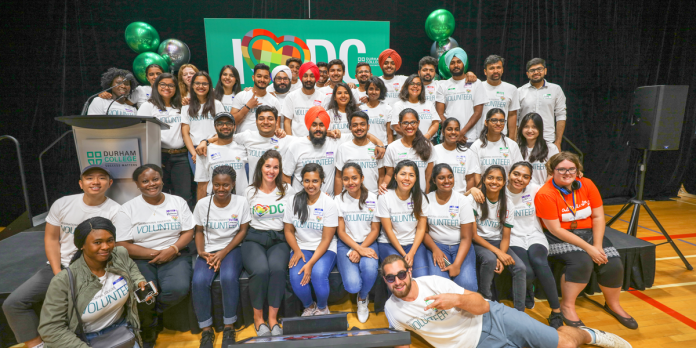Enrollment of international students at Durham College dipped this academic year due to the pandemic. When life returns to normal, students from all over the world will once again wander through the campus, wide-eyed and nervous.
Hopefully, if you are one of them, you won’t feel compelled to anglicize your name.
Acknowledging that one’s name is a personal choice is important. But so is exploring the repercussions of anglicizing it. After all, individual liberties sometimes impede collective progress.
Canada’s liberal stance on immigration means most citizens have met individuals who inhabit a different skin colour and respond to an unfamiliar sounding name. Over the past few decades, many Canadians have strived to build a more inclusive society, both through their own actions and that of their institutions’.
As an international student at DC, you’ll encounter these attempts within the first week of college. Professors rattling off names while taking attendance will slow down upon spotting one they can’t pronounce, in order to spend a minute learning how to say it right. DC Connect allows students to specify a preferred name, saving some of you the trouble of having to repeatedly clarify to college employees that your first name is actually your father’s name.
So when such measures are being taken to extend a welcoming hand to international students, what prompts many to still anglicize their names?
Though there are multiple reasons, most can be summarized by a single statement: ‘It’s just easier that way.’
It’s understandable some want to avoid restating their names and then be forced to smile as the listener reproduces a mangled version.
It makes sense to adopt a nickname with fewer syllables after getting tired of correcting woeful pronunciations.
Then there are students who are eager to fit in and thus embark on a journey of ‘pre-emptive assimilation’, ensuring their documentation and introductions are seamlessly synchronized from the very beginning. They prepare months in advance by having their passport names modified.
But consider this: when you introduce yourself on campus as an international student, you also establish a portal to your cultural heritage. Some might struggle with the pronunciation, but for a brief moment, there exists the possibility for a nuanced exchange.
All of that is eliminated when, for example, an international student from India anglicizes her name. She dons a disguise that divorces her from the responsibility of relaying to others who she is and where she comes from.
Those tired of being exoticized or relied upon as a token minority will balk at having to explain their culture. This dynamic, however, would persist, or perhaps even worsen, if immigrants continued to anglicize their names.
It’s not just Canadians whose minds are broadened through interactions with international students who have tongue-twisting names. Those students get to rethink a lot of preconceived notions as well.
For example, some Muslim international students arrive at DC believing their beards will subject them to Islamophobia. In order to assimilate, they shave both beard and name. Thus missing the opportunity to learn perceptions of beards in Canada differ from what media back home have led them to believe.
If instead they introduced themselves with their own names, they’d find their beards remind their new friends of Jagmeet Singh and The Weeknd, not Osama Bin Laden and Abu Bakr al-Baghdadi. Even though their parents and grandparents back home might continue to insist during video calls that they need to shave.
While it’s impossible to list all the benefits of retaining your name, it’s important to understand the lasting contribution one makes with such a decision.
Once the mispronunciation and confusion subside, those who know your name will know how unique both your heritage and hopes are.
Their tongues will learn to curl but you won’t need to bend to fit in.
They will embrace you for who you are, not who you think they want you to be.




